Which advanced technologies revolutionize induction hardening steel?
Induction hardening is a vital process in the manufacturing industry, enabling the creation of hardened steel parts with exceptional strength and durability. While the traditional methods have served us well over the years, the rapid advancements in technology are reshaping the landscape of induction hardening. In this article, we will explore some of the most revolutionary advanced technologies that are propelling the industry forward, ensuring improved productivity, precision, and overall quality.
1. High-Frequency Induction Heating Systems.
One of the most significant breakthroughs in induction hardening technology is the development of high-frequency induction heating systems. These systems utilize advanced power supplies and sophisticated control algorithms to achieve precise and controlled heating of steel components. By operating at frequencies in the range of 10 kHz to 50 kHz, these systems offer several advantages over traditional lower frequency alternatives.
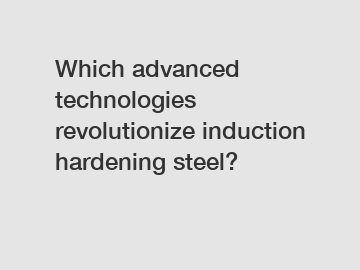
High-frequency induction heating systems enable localized, rapid, and uniform heating of steel parts, resulting in reduced distortion and precise heat patterns. Moreover, they allow for deeper penetration of the hardened layer, enhancing the overall hardness and surface integrity of the components. This technology facilitates higher production rates, increased repeatability, and improved energy efficiency, making it an indispensable tool in modern induction hardening processes.
2. Intelligent Closed-Loop Control Systems.
To ensure optimal and consistent results, induction hardening processes must closely monitor and control various parameters. This is where intelligent closed-loop control systems have revolutionized the industry. These systems employ state-of-the-art sensors, actuators, and advanced algorithms to constantly adapt and regulate the process parameters during induction hardening.
By continuously analyzing the real-time data from various sensors, such as temperature and power sensors, these control systems can dynamically adjust the power levels and frequency to maintain the desired hardness profiles. This level of precision control has greatly enhanced the quality and uniformity of induction hardening, eliminating defects and reducing the need for costly post-process corrections.
3. Laser-Based Surface Hardening.
Additional resources:What is the best oil press?
Discover the Advantages and Uses of Polyester Conveyor Belts: A Game-Changer in Industrial Belt Solutions
Where does PET plastic go?
Which ceramic plate ozone generator is the best for purchase?
Which affordable HPV118 model offers the best features?
What is best industrial floor sweeper?
What are the top factors to consider when determining the optimal dump truck load capacity?
While induction hardening is renowned for its ability to create hardened layers deep within the steel, laser-based surface hardening has emerged as a complementary technology that offers exceptional surface hardness. This process uses a focused laser beam to selectively heat and harden specific areas of the component's surface, providing excellent wear resistance and hardness.
Laser-based surface hardening offers superior control and precision compared to traditional flame hardening methods. The ability to precisely target areas prone to wear or impact enhances the component's longevity and performance. This technology is especially valuable for complex-shaped parts where conventional induction hardening may prove challenging.
4. Numerical Simulation and Artificial Intelligence.
In recent years, the integration of numerical simulation and artificial intelligence (AI) techniques has significantly enhanced the effectiveness and efficiency of induction hardening processes. By modeling and simulating the heating patterns, temperature distribution, and hardness profiles, engineers can optimize process parameters and minimize trial-and-error experimentation.
With the advent of AI algorithms, data-driven models can now predict and correlate key process variables, such as power, frequency, and quenching rates, with desired hardness characteristics. This enables manufacturers to achieve desired hardness profiles with greater accuracy and reduced material waste, leading to improved productivity, shorter development cycles, and cost savings.
Conclusion.
The revolution in advanced technologies has unleashed a new era of possibilities in the field of induction hardening. High-frequency induction heating systems, intelligent closed-loop control, laser-based surface hardening, and the integration of numerical simulation and AI are transforming the way we produce hardened steel components. These technologies offer increased precision, productivity, and overall quality, empowering manufacturers to deliver products that meet the stringent demands of modern industries. As technology continues to evolve, we can expect even more remarkable advancements in induction hardening, shaping the future of steel manufacturing.
Want more information on high frequency induction screw rod quenching machine, induction forging furnace, induction hot pipe bending? Feel free to contact us.
Additional resources:Where is U2 touring in 2023?
Are electric forklifts cheaper?
How does fabric cutting machine work?
Boost Productivity with High Speed Packaging Machines: Top Solutions for Quick and Reliable Packaging
What are the benefits of automated fluid dispenser?
What are the top benefits of investing in an SMT PCB Stacker Unloader for the purchase stage?
How Does a Blow Molding Machine Work ?
201
0
0
Related Articles
-
Unveiling Unbeatable Metal Laser Cutting Machine Deals: Affordable Pricing & Superior Quality!
Unveiling Unbeatable Metal Laser Cutting Machine Deals: Affordable Pricing & Superior Quality!
234
0
0
-
241
0
0
-
What is the difference between auxiliary boiler and exhaust gas boiler?
What is the Difference Between Auxiliary Boiler and Exhaust Gas Boiler?
260
0
0
-
219
0
0
-
228
0
0
-
Which CNC Gear Hobber for Sale offers the best value for money?
Which CNC Gear Hobber for Sale offers the best value for money?
273
0
0
-
The Ultimate Guide to PE Film Washing: Eco-friendly Solutions
Google Hot Topics: The Ultimate Guide to PE Film Washing: Eco-friendly Solutions?
207
0
0
-
Boost Efficiency & Power: Ultimate Guide to High Pressure Compressors
Boost Efficiency & Power: Ultimate Guide to High Pressure Compressors.
208
0
0


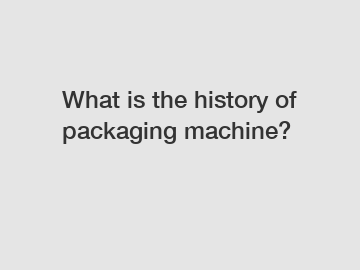
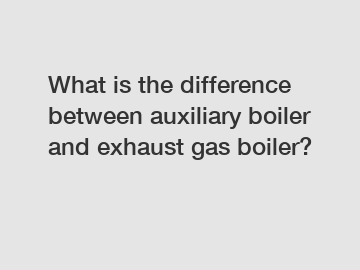
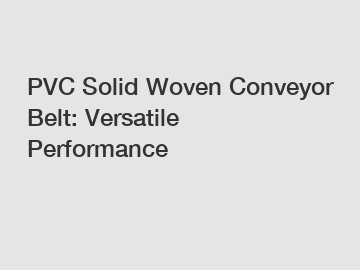
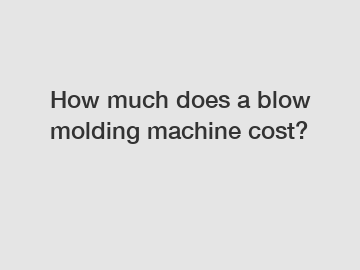



Comments
All Comments (0)